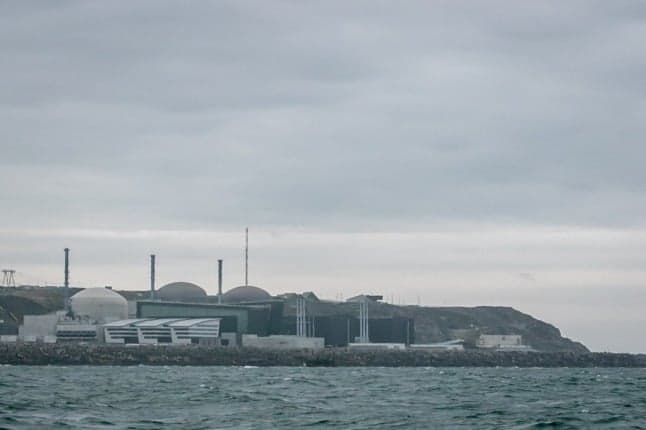More delays at France's newest nuclear power site

French electricity firm EDF announced new delays and cost overruns for its troubled new-generation nuclear plant in northern France on Wednesday as the Covid pandemic made the work more difficult.
The heavily indebted group said that the plant at Flamanville on the Channel coast would not be loaded with fuel until the "second quarter of 2023", instead of late 2022.
Projected costs had increased by another €300 million to €12.7 billion - around four times more than the initial forecast of €3.3 billion.
The new schedule and budget take into account "the progress of work and preparations for the start in an industrial context that has been made more difficult by the pandemic," the state-controlled company said in a statement.
READ ALSO Why is France so obsessed with nuclear power?
The group has experienced multiple technical setbacks with the Flamanville plant, with the the national nuclear watchdog identifying problems with welding in 2019 which had to be redone.
The new-generation EPR plant at Flamanville is the only one under construction in France, but three others are in operation around the world: two in China and one in Finland.
EDF was also picked to build a two-reactor plant at Hinkley Point in southwest England in 2016, but this project too has been hit by delays and cost overruns.
Despite objections from some environmentalists, the French government is banking on new nuclear plants to hit its targets for reducing carbon dioxide emissions.
The country currently gets the bulk of its electricity - 70 percent - from 56 reactors spread across the country but many of them are coming to the end of their expected lifespans of 40 years.
If the reactor is loaded with fuel in Flamanville in the middle of next year, it would be expected to begin commercial operations around five or six months later.
The government has said a coal plant at Cordemais in western France will be allowed to operate until 2024 until the Flamanville site is brought online.
Comments
See Also
The heavily indebted group said that the plant at Flamanville on the Channel coast would not be loaded with fuel until the "second quarter of 2023", instead of late 2022.
Projected costs had increased by another €300 million to €12.7 billion - around four times more than the initial forecast of €3.3 billion.
The new schedule and budget take into account "the progress of work and preparations for the start in an industrial context that has been made more difficult by the pandemic," the state-controlled company said in a statement.
READ ALSO Why is France so obsessed with nuclear power?
The group has experienced multiple technical setbacks with the Flamanville plant, with the the national nuclear watchdog identifying problems with welding in 2019 which had to be redone.
The new-generation EPR plant at Flamanville is the only one under construction in France, but three others are in operation around the world: two in China and one in Finland.
EDF was also picked to build a two-reactor plant at Hinkley Point in southwest England in 2016, but this project too has been hit by delays and cost overruns.
Despite objections from some environmentalists, the French government is banking on new nuclear plants to hit its targets for reducing carbon dioxide emissions.
The country currently gets the bulk of its electricity - 70 percent - from 56 reactors spread across the country but many of them are coming to the end of their expected lifespans of 40 years.
If the reactor is loaded with fuel in Flamanville in the middle of next year, it would be expected to begin commercial operations around five or six months later.
The government has said a coal plant at Cordemais in western France will be allowed to operate until 2024 until the Flamanville site is brought online.
Join the conversation in our comments section below. Share your own views and experience and if you have a question or suggestion for our journalists then email us at [email protected].
Please keep comments civil, constructive and on topic – and make sure to read our terms of use before getting involved.
Please log in here to leave a comment.